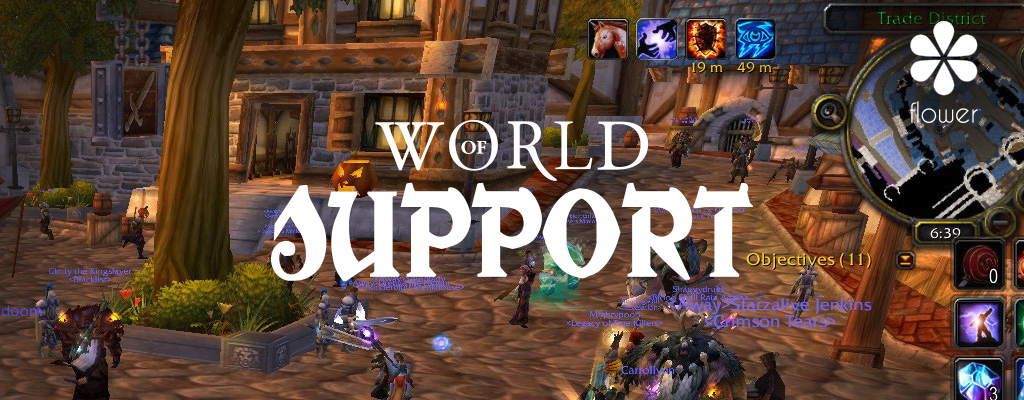
When Dogpatch Tech first approached me about doing user research to help them build an amazing mobile application for community support, I thought, “That sounds like something that people could really use, but most of my research looks at people and gaming; what do I know about finding support among friends and family?”
Looking back, however, I discovered that I had many stories of people offering support to each other in online communities. These are some of the lessons I learned.
It’s not necessary to be strong all the time
Brian* was in his 60s and he was undergoing multiple, difficult cancer treatments. I interviewed Brian while he was playing the online game World of Warcraft. Brian and his wife had set up his bed so he could use a laptop as he recovered and “hang out” with his friends without leaving his sickbed.
I would often seen Brian login to the game late at night, so I asked him about it. He told me how worried his wife and family were about him, and he felt he had to be upbeat and positive for them. When he was sleepless, worrying about his health, his family, and what the future held, he would open his laptop and focus on the game. As he talked to his game friends he didn’t have to wear a cheerful face. He could talk about how scary cancer was for him. Brian wasn’t looking for answers, but being able to talk with his community about his fears made those fears less powerful and helped him be strong for his family.
It’s important to feel useful
It is hard to ask for help, even when you know you need it. Brian found it difficult to accept help for every little thing, but the surgeries and the radiation took a physical toll and he needed support for even simple everyday tasks. He wasn’t used to feeling helpless and it frustrated him.
In the game world Brian wasn’t helpless and he wasn’t confined to his bed. He could join his friends in overcoming difficult challenges. He could create items to give or trade with other players. Sometimes he just listened and gave advice when other players wanted to talk about something going on in their lives. Helping the other players let him give back some of the support he’d been receiving from his family and friends and made him feel useful.
It’s important to feel connected
Ellen* and her husband were both professionals in their 30s when they had their first baby. They decided that Ellen would quit her job to stay home with their son for his first few years. The transition from being in an office with many people and responsibilities to a stay-at-home mom was difficult, and Ellen began to feel trapped in her house.
Ellen started playing World of Warcraft on her computer when her son was napping. She was at home and could check on her son at any time, but she could also have conversations with other players and complete quests in the game. Ellen met other players who were also parents and she had candid conversations about raising healthy and happy children. Ellen avoided the isolation that many new parents feel by connecting to a community of people with a shared hobby, interests, and experiences.
As I reflect on my research on gaming, I realize that I have seen people use technology to get the kind of support they need during life’s most stressful moments. I was eager to apply that experience to the Flower app and help Dogpatch Tech build something useful and meaningful.
*Names of interviewees are pseudonyms.

